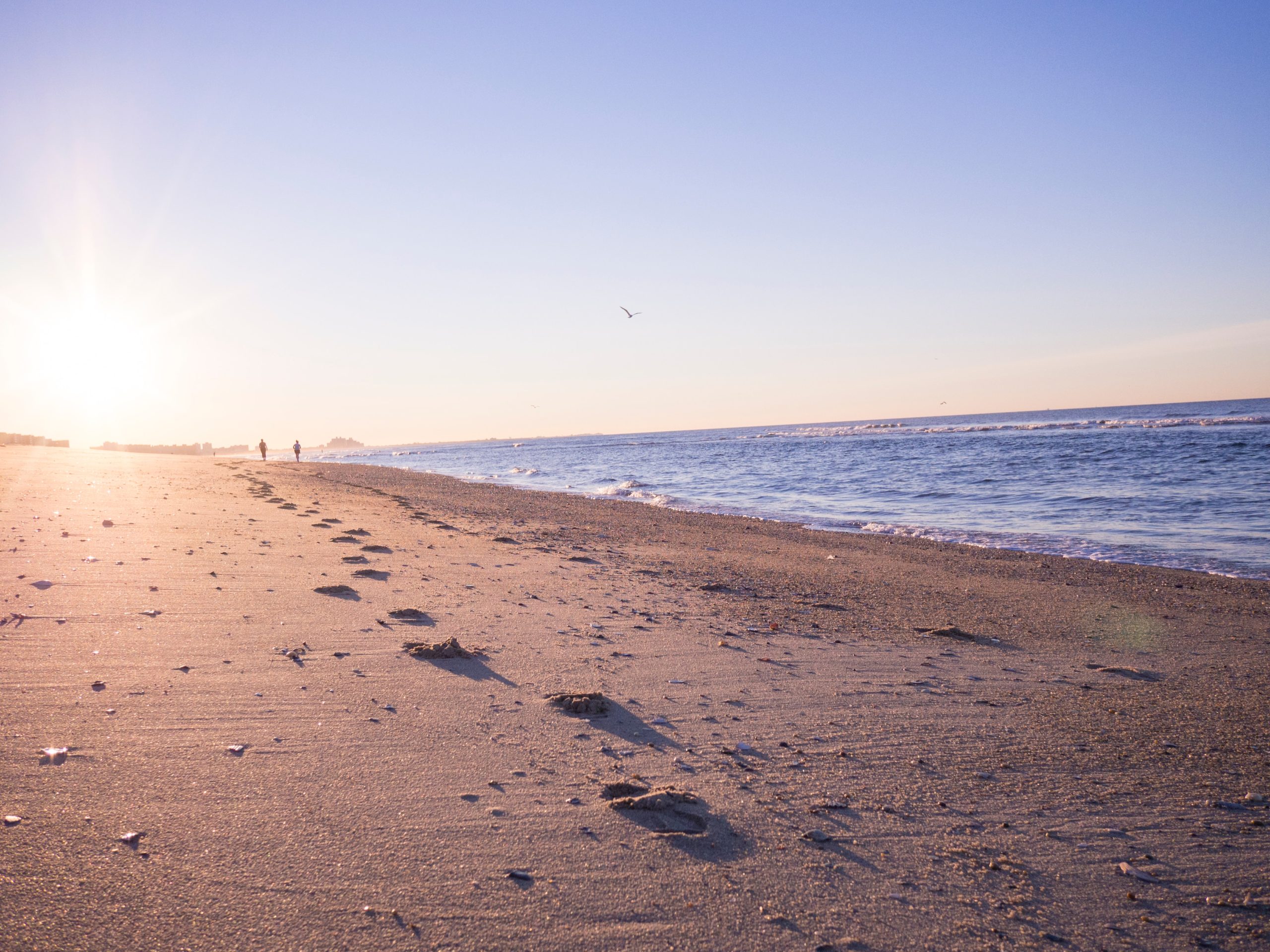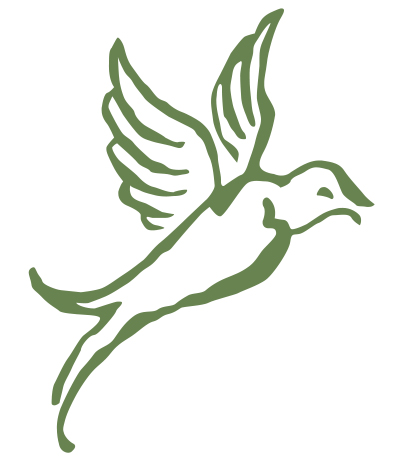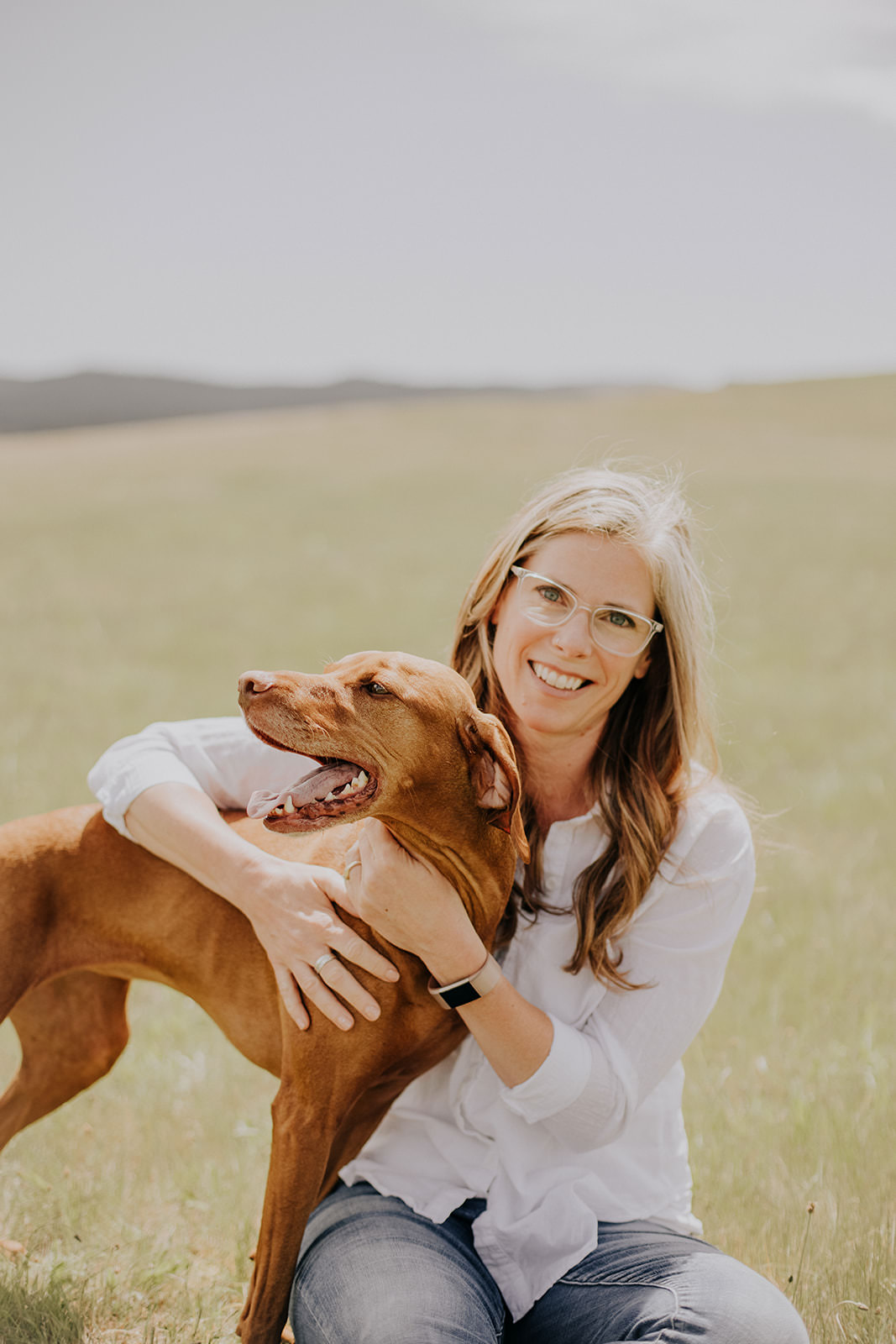Earlier this year I made a note in my journal that my husband and I were praying about a big decision. I rarely use exclamation points, but I had adorned what could have been a simple statement with this punctuation that implied feeling, or incredulity.
We prayed for months, and in early April we began to look for counselors to tell us we were crazy. We asked those we trusted spiritually, and because this was a business decision, we asked people familiar with the industry. Are we fools? Does this make sense? Is this how you see the Lord leading us?
The prayer we kept praying was show us, Lord, because we wanted to be sure. If we were going to leap we wanted it to be in faith that God indeed was leading. A lot was at stake for us, and certainty was what we were after.
You know how this story goes because you have prayed and asked and hoped for some sense of surety before making a decision. You have wanted your burning bush or still, small voice. You’ve asked for a sign.
Faith is believing that God is able, but courage requires me to act on the part that is uncertain—the untried and untested idea. God has to do everything in me, and I have to do everything in Him. Whether I am capable or not is not the question to ask.
But I do ask. I do wonder if I can do this thing, or if maybe God’s intention is to completely break me through this scenario. I am sometimes ungenerous in my assessment of Him.
C.S. Lewis said “…relying on God has to begin all over again everyday as if nothing had yet been done.” This is the work we do as we head into uncertain territory. Relying on God is so different from trusting my own abilities or resources, or my talent at figuring Him out. I don’t get by with past faithfulness; but past faithfulness does shape me for today’s needs. And the past faithfulness of God leads like a trail through the unknown.
If He’s in, I’m in.
If He’s out, I’m out.
But how do I know?
WALK IT OUT
I walk the same stretch of woods near our home as often as I can, starting on foot from my front door. I can wander in familiar territory without terror of losing my way home, and there’s safety in this kind of freedom. I know the terrain, I know whose land I’m on, and even if I’m not adept at every turn, one hand can always point the way back.
Sometimes we drive around in the woods I am the passenger, observing treetops and watching for flowering or flittering things. I joke about the sense of direction I lack but it’s more likely that I just don’t pay attention to the necessary things, like road numbers and left turns and how many miles from the main road we are. I would not be able to get us home, and I am thankful my husband is skilled at driving these mountains. He knows the roads like I know my trails, and I rest in his sense of direction.
We drive for 30 minutes and hike together where there are no paths, and only the flora and fauna are familiar to me—same kind of trees, same squirrels, same sky and needle-strewn forest floor. He’s taught me to follow the creek, look for the blaze marked on the trees, and turn at the Hemlock to return to the truck. Coordinates pull you back, and almost by feel he gets us home from the woods.
By feel, I work my way around the woods I know. I follow the deer trails once in a while, trace the pattern of old roads and deep ruts. I know I’m close to home, and I treat it all like mine, like an exploration of land given me by a good God. And not only land—air, and light. Space and warmth and a good, alerting chill, all traced over with wild living things. This land is my land, and I go out in spring to watch the unfolding wild “flag” iris, the polka dot of yellow buttercups in the ditch. All summer I smell the sweetness of warm, woody detritus. In fall I watch the world painted red, and every winter I look for the deep green that remains in the forest.
I know this place.
I climb over a downed tree in the road, blown by last winter’s breath. It has broken at the base and is splintered violently everywhere, like shredded chicken. The stump is still in the ground though, roots holding it fast to its own space in the world. Here it was planted. Here it will be, a stump of itself. Unless someone takes the time to completely remove it, that stump will hold its ground long after I am able to walk by and call it mine.
I’m unsure if this tree is a lesson to grow deep roots, or a warning about being stuck. It’s just a downed tree some might say—but remember, I’m looking for signs.
TAKING THE STEPS WE KNOW
On a Tuesday in April we say our official “yes”, without having heard any audible voice. We are only absolutely certain that the saints have encouraged us (literally “filled us with courage”) and our hearts are not greedy—what God does with that is up to Him. Along with godly counsel and business insight, we also have an incredible peace. We are Jonathan, telling his armor-bearer that the two of them were going to take on the Philistines because “…it may be that the LORD will work for us” (1 Samuel 14:6).
What we’ve said yes to is hospitality and creating space for young and old, the saints and the sinners, the thankful and the hostile people of our own place. Our community. For almost 40 years my husband’s family has owned the only restaurant in our small town, but at the end of last year it closed. We are without a place to grab a cup of coffee and chat with a friend, and several times in the last few months I’ve wanted to skip cooking and grab burgers, but I can’t.
Our desire has never ever even remotely been to run a restaurant, and we already have a busy construction company on our hands. But in February my husband asked what I thought about buying and remodeling the restaurant, and re-opening it as a deli and market. I didn’t hate the idea. Slowly I began to cautiously love it, until I knew I’d be disappointed if we didn’t say yes.
What we’ve said yes to is also the unknown, but that’s true of every decision we ever make. We are not certain of success, or even sustainability. We are not certain how this decision will ultimately affect our family and our marriage, or how it plays in to the writing life I desire—though I take courage in remembering that Madeleine L’Engle and her husband ran a country store, too. She worked the store in the morning and came home to write in the afternoon.
Once our new business is up and running, the brunt of it will fall on me for a time. Money and work and exhaustion and rest all have to work together in this kind of economy. We said our yes and we know the next few steps, but we still have no idea of the outcome. We could fail, and very publicly. We could overextend ourselves and have no recourse except an extremely humble crawl backwards.
But who knows? It may be that the Lord will work for us, and for our community.
A writer has to live a life—see things, think things, step over and around things as she wanders the round earth. While I worry about my time and how it will be spent, I trust the God of the land. I trust that He is giving me a whole, integrated life to live and tell about. I will still tell you about the woods. I will tell you when the wild sunflowers bloom and where the ancient eucalyptus tree lives and how good God is. But now it’s possible that I will have even more stories to tell you about a small life in a small town, roots in the ground, and room to wander.
The featured image is courtesy of Aaron Burden.
You can see more of Aaron’s remarkable images here and here.
Tresta Payne learned to appreciate the beauty of God from the landscape of the Pacific Northwest, where she lives with her husband and four children. She builds her own MFA in creative writing through homeschooling her children and tutoring others, finding every excuse to learn and read and grow. After twenty years of homeschooling she is ready for someone to hand her that degree. She enjoys a good, deep discussion with a balance of differing opinions, and works out her own thoughts in writing. Tresta walks a lot on the wild country roads around her home, with her dog and her thoughts and the nearness of God to keep her company.
Leave a Reply
A Field Guide to Cultivating ~ Essentials to Cultivating a Whole Life, Rooted in Christ, and Flourishing in Fellowship
Enjoy our gift to you as our Welcome to Cultivating! Discover the purpose of The Cultivating Project, and how you might find a "What, you too?" experience here with this fellowship of makers!



A restaurant sounds like an amazing adventure–especially if it’s been in your family for years! What a delightful legacy.
You have to start somewhere and you did with your yes. trust in him to keep showing you the way. and believe that it will all turn out for the best!
Thank you, Cat! We are so grateful for His guidance, especially when His best gets difficult ; )
Legacy! What a great reminder, Maribeth. Thank you.